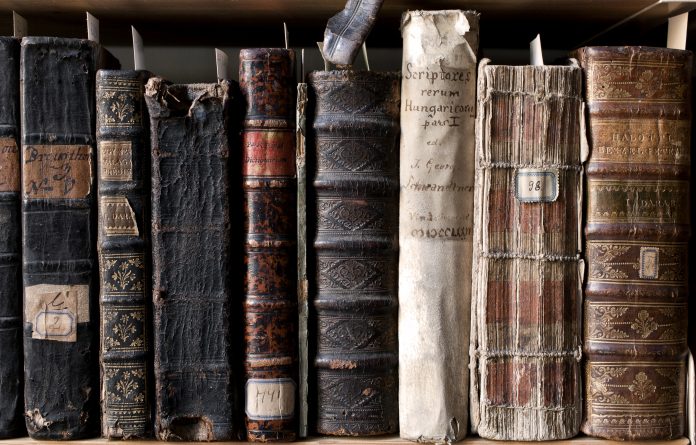Experienced teachers and leaders Rachel Ball and Alex Fairlamb, authors of What is history teaching, now?, John Catt Educational, discuss the importance of history education and why it continues to matter today
History is a booming industry. As a nation, we are obsessed with finding out about the past, uncovering new evidence and trying to solve historical mysteries. The wealth of documentaries, podcasts, books and even dedicated TV channels demonstrate that history is not just important; it is relevant. Our innate desire as humans is to know who we are as individuals and what forces and events have shaped our own and collective identities.
For teachers, history education can be relentless in the pursuit of ensuring that students feel history is vital to their lives. This is because history matters. If we want young people to be able to distil opinion from fact and then articulate reasoned arguments, if we want them to be empathetic to everyone in their communities or to understand their place in the world, then they must be given the opportunity to study history.
Macmillan (2009) reminds us that ‘history is not a ‘dead subject’. It is wiser to think of history not as a pile of dead leaves or a collection of dusty artefacts, but as a pool, sometimes benign, often sulphurous, that lies under the present, silently shaping out institutions, our ways of thought, our likes and dislikes.’ History is a verb – shifting in complex and confounding ways. Like a tide, with every new source uncovered and every interpretation that emerges, history shifts in unpredictable ways.
Diverse and representative history curriculums
In 2023, history teachers are changing the focus of their curriculums to ensure that they are diverse and representative, ensuring that silenced voices have been woven in. History teachers know the importance of history as a form of identity and belonging and its role in either dispelling or reinforcing myths and stereotypes. The history curriculum must be a kaleidoscope of lenses for this to happen. Resultantly, as architects of their curriculum, history teachers thoughtfully select diverse enquiries to be studied, weaving in broad ranges of sources and interpretations.
History teachers have worked tirelessly to put scholarship at the centre of the enquiries studied. By placing historical debate and arguments at the centre, this immerses the pupil into organic and evolutionary world that is history education and the work that historians do – helping them to appreciate that history is something which lives and breathes as a discipline and is not consigned to dusty tomes sat removed at the back of library shelves.
Historians such as Rubenhold, Kauffman, Olusoga, and Sanghera have empowered history teachers to achieve this. Through their ground-breaking work, they have transformed the study of commonly taught topics such as the Tudors and the British Empire by illuminating the many lenses and objects through which these periods could be studied. Their work is powerful in how it resonates with contemporary issues, such as racism, migration, misogyny and ableism.
Understanding historical events in education
For students to understand the significance of events like the toppling of Colston’s statue or the murder of George Floyd and the toppling of Colston’s statue and to be able to navigate through the myriad of polarised opinions which explode during such times, they need to understand how the past connects with the present.
Students need the knowledge and critical thinking skills to be able to dissect such events and frame them within the broader narrative of the past: the long history of migration and Black History, alongside Britain’s uncomfortable history of colonisation and its role in the Trans-Atlantic Slave Trade.
By doing so, students can engage in social justice debates and appreciate why, in modern times, issues such as systemic racism exist so prevalently. They can explore how and why politicians use migration and race as election dog whistles, and they can examine the range of Black civil rights movements.
This is strengthened by Counsell, who argues that ‘The historical consciousness of children matters because they are human beings. History teaches us the meaning of human-ness.’ (Counsell, 2007). This is why history education fosters critical thinking – an ability to infer from sources, evaluate differing interpretations, analyse change and continuity, and be able to form convincing written and oral arguments.
Digital technology in history education
History in 2023 is exciting. Digital technology has developed the examination of ruins and unearthed new evidence about the past. It has digitised sources, enabling greater access to previously inaccessible evidence. Revolutionary developments in science and technology (such as examining isotopes) have helped to unlock narratives in history, such as Ivory Bangle Lady and helped to foster new interpretations.
In the age of the internet, social media has added a new type of source to history education – including announcements from world leaders to their role in triggering global movements, such as the #MeToo movement. It has also created a channel through which historians and history teachers can engage with one another, strengthening the role of scholarship within the classroom.
That history is a dead subject could actually not, therefore, be further from the truth. history is more alive than it has ever been and is, therefore, an important part of each child’s education:
‘…History matters. It is not just ‘useful,’ it is essential’ – (Corfield, 2008)
References
- Counsell, C cited in Culpin, C The 2007 Medlicott Medical Lecture – What kind of History should School History Be? (Historical Association, 2007).
- Corfield, P (2008) All people are living histories, which is why
History matters – Making History (online) found at https://archives.history.ac.uk/makinghistory/resources/articles/why_history_matters.html accessed 12 July 2023. - Macmillan, M (2009) The Uses and Abuses of History, (Random House: New York), pg. 3.











